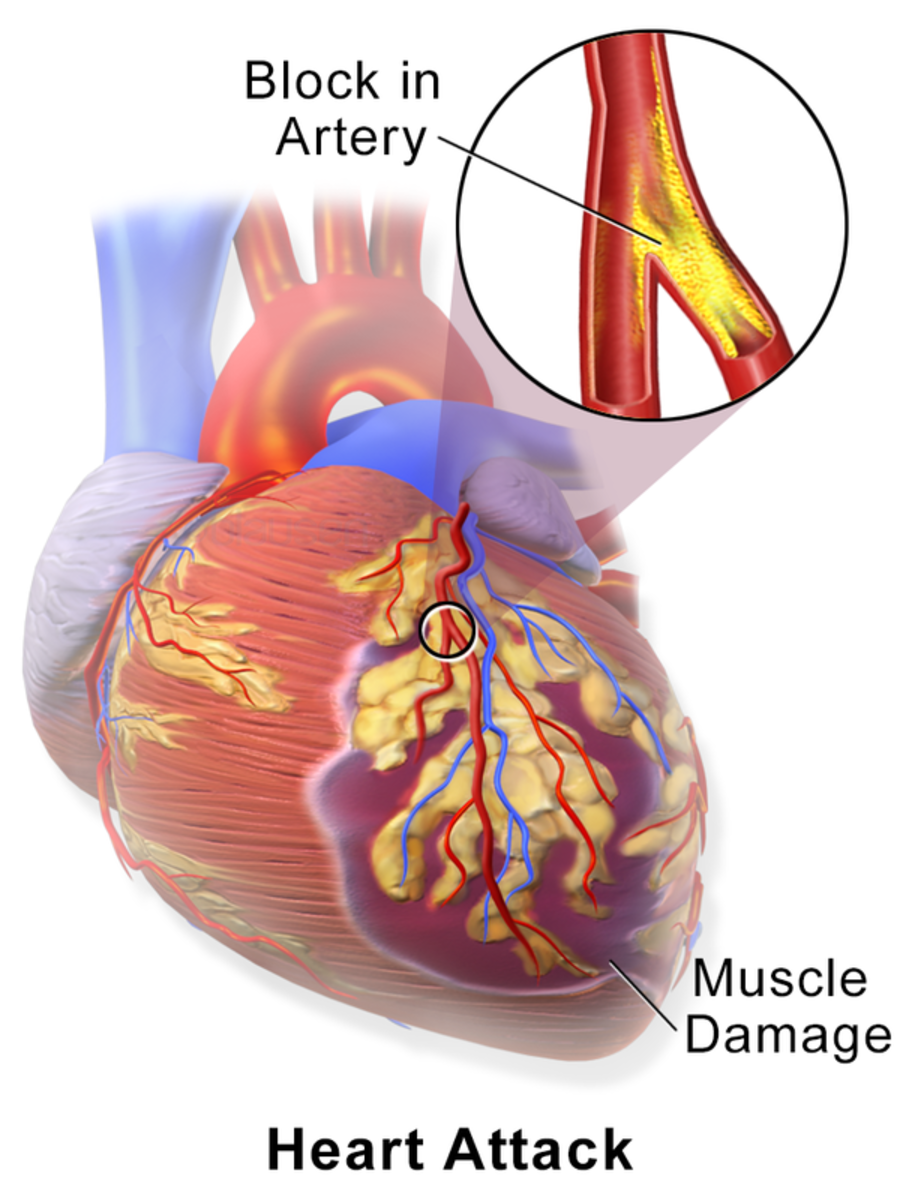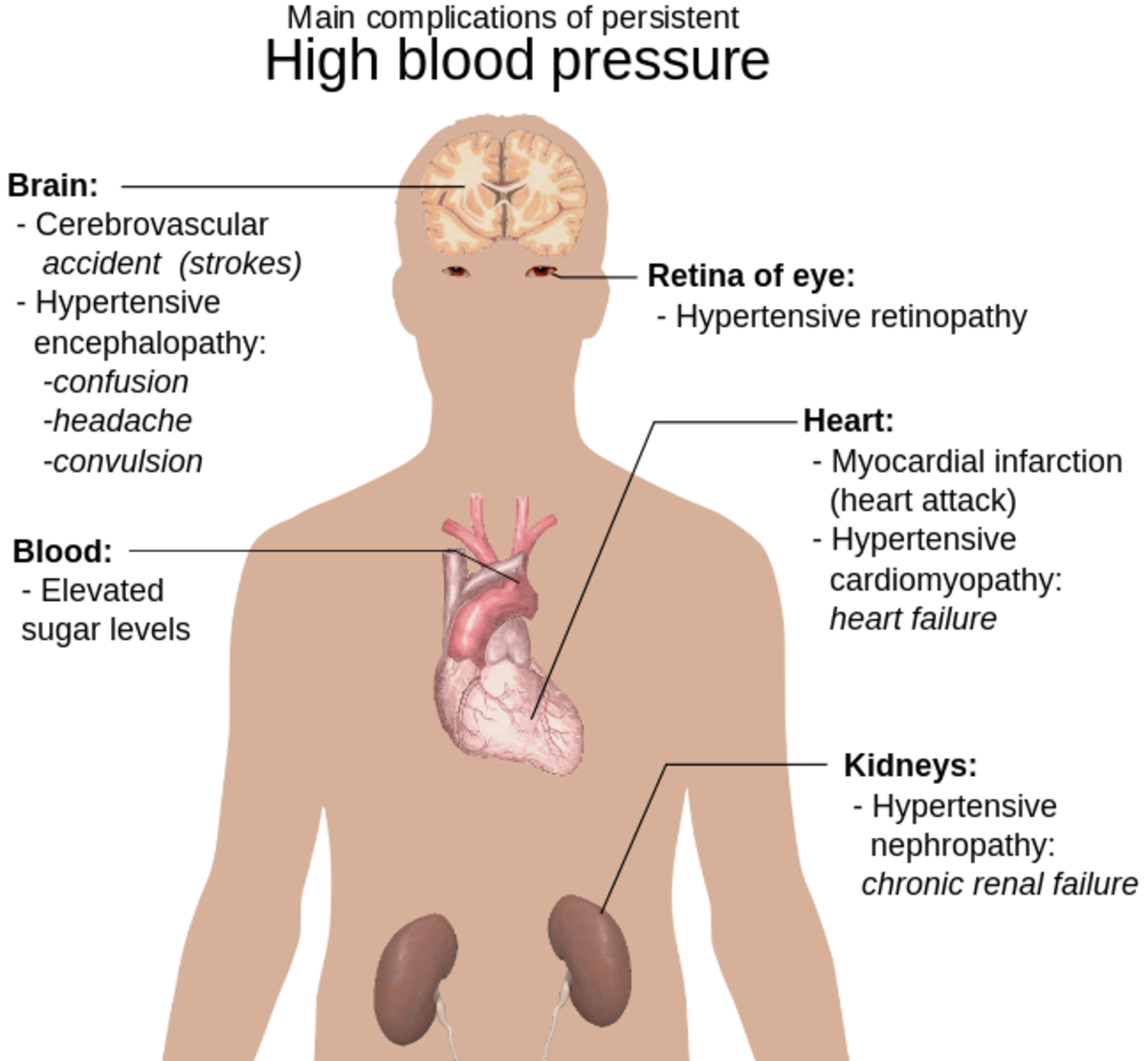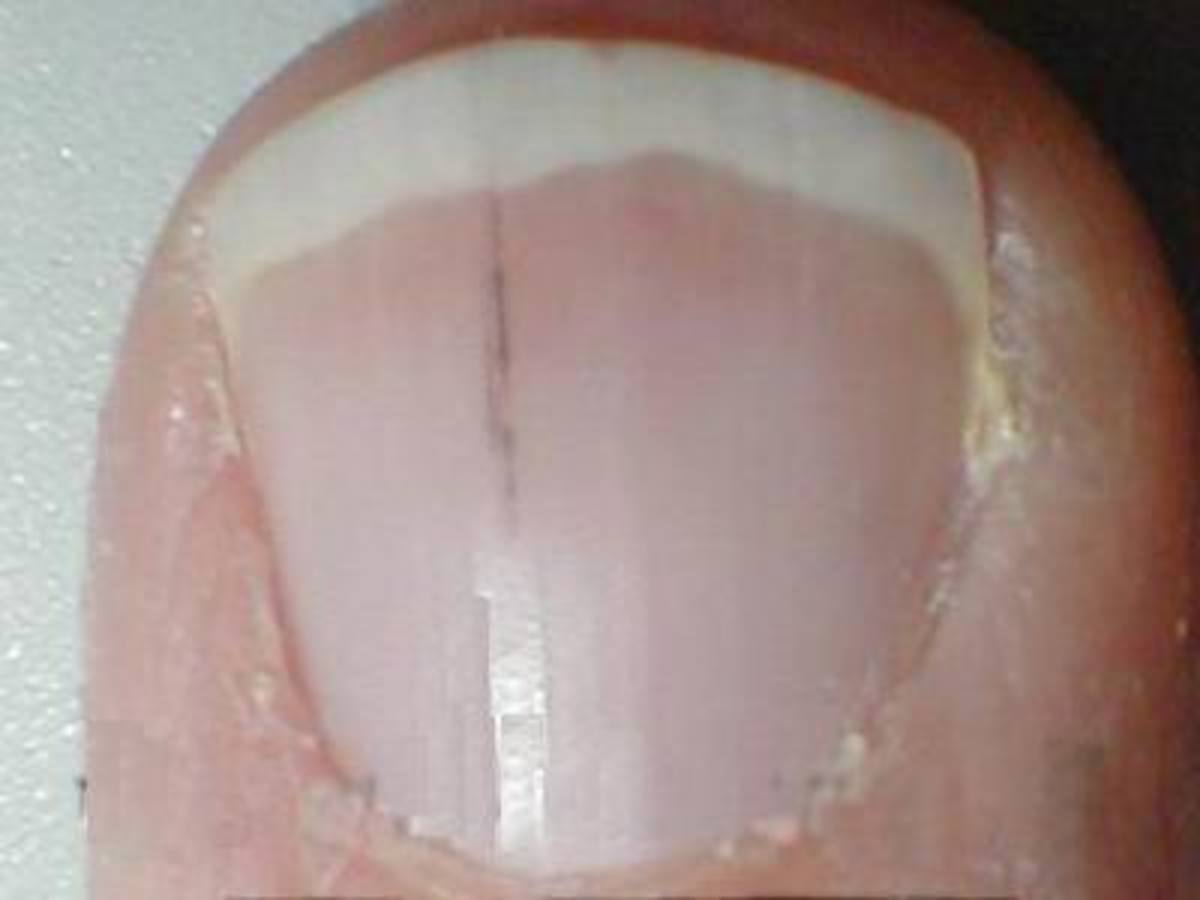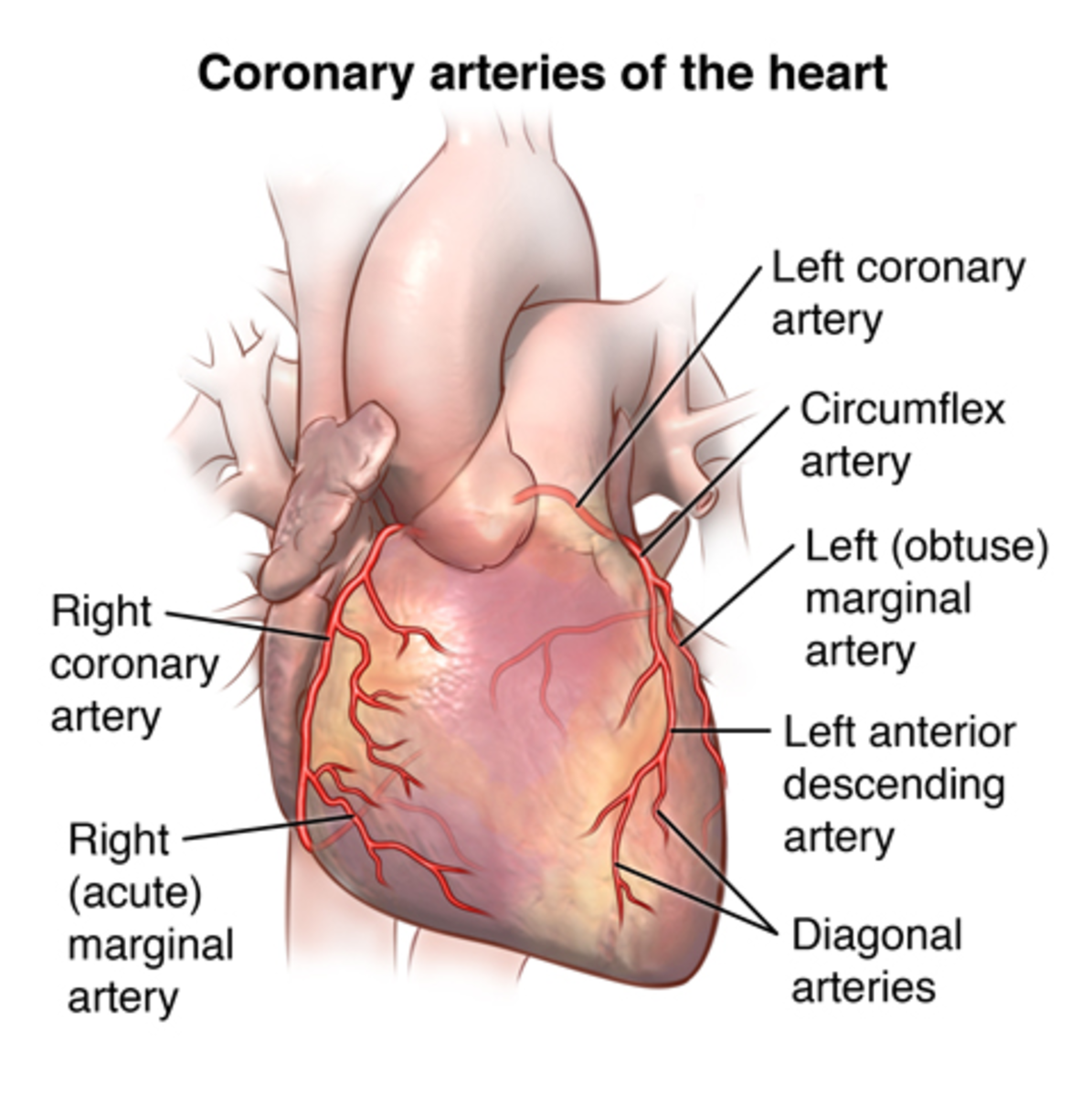Drinking Alcohol and Heart Disease - Facts and Information
Every cigarette has the potential to do the heart harm. Is the same true of alcohol?
That is very difficult to answer. First, it has to be conceded that there is no evidence to link moderate amounts of alcohol with heart disease. Alcohol tends to open up arteries, rather than close them, so some doctors have even argued that a little alcohol may do 'heart' patients good.
However, it all depends on what is meant by a ‘little', and on whether the drinker can stick to the rules. A little can so easily become a lot!
Probably the group of doctors to have done most to investigate the effects and ill-effects of measured amounts of alcohol are the team led by Professor Roger Williams, of the Liver Unit at London's King's CollegeHospital. Over many years they have studied the drinking habits of thousands of people, and they have finally come to definite conclusions, which are now used as standards for the guidance of doctors all over the world.
Classically, doctors have been taught that the main organs attacked by alcohol are the liver and the brain. Too much alcohol causes cirrhosis and even cancer of the liver, and can damage the brain cells, leading to loss of intellect and even insanity.
So how much is too much? The King's College team has defined that very clearly. They talk of standard 'units' of alcohol. One unit is equivalent to a half pint (500 ml) of beer or lager, one glass of wine, one measure of fortified wines such as sherry or martini, and a single measure of spirit such as whisky or gin (a half measure in Scotland).
Men, according to the experts, can cope with up to 21 standard units of drink a week. For women the upper weekly limit is only 14 units. (The difference is not just due to their difference in size: it also arises from the need for the liver in women to cope with their sex hormones as well as the alcohol.)
This means that the regular male drinker should take no more than three drinks, and his female counterpart no more than two drinks, on any night. However, even this may be too much, if the drinking goes on every night. Professor Williams' team advise that the body should be given a rest from alcohol on at least three days a week.
This advice was originally given to help people avoid liver and brain damage, but it is now becoming clear that it holds good for the heart, too.
There is nothing to suggest that alcohol in excess helps to cause heart attacks, in the sense that it might narrow the coronary arteries, accelerate atheroma or make the blood more viscous. It does not increase the blood's tendency to clot. It may even open up blood vessels a little - this is the cause of an alcoholic flush. So, superficially, alcohol could be said to help, rather than promote heart attacks. This, in fact, used to be the advice given by some doctors. They suggested to patients who already had heart disease that 'a little drink every now and then' might do good.
Unfortunately that advice is wrong! The proof of that was given by Dr Gareth Beevers, of DudleyRoadHospital, Birmingham. Dr Beevers is an internationally known specialist in hypertension (high blood pressure). A review of thousands of patients with hypertension established a very strong fink between alcohol consumption and high blood pressure: the more people drank, the higher the pressure.
This surprised many doctors, who felt that alcohol might if anything lower the pressure. Dr Beevers proved, however, that alcohol had a special, direct effect on the heart, even when taken in moderate doses. Many moderate drinkers had enlarged hearts, high blood pressure and a poor heart reserve in times of crisis.
The conclusion had to be that if you are a drinker, and have a heart problem, such as angina or a full blown heart attack, then the alcohol will always make that worse, rather than better. For the person with angina it is probably better to be teetotal than to take alcohol as a 'stimulant'. In fact, Dr Beevers' work suggested that alcohol may appear to the drinker to be a stimulant, but it is in fact a depressant.
So how much can one drink without causing harm? For people who are healthy, and obey all the rules, such as not smoking, exercising well, eating correctly, and who do not have high blood pressure or diabetes, then the King's College figures apply. They can drink up to two or three units per day, perhaps four times a week.
For the person with high blood pressure or angina, or who has had a previous heart attack, then this may be too much. Where alcohol is concerned, each case should be taken on its merits. My advice is, if you are in one of these categories, that you should talk over your drinking habits very carefully, and honestly, with your specialist.
Looking back on Dr Beevers' work from the vantage point of the year 2000, it seems that opinions on alcohol vary from time to time, but the underlying message remains the same. Today's accepted opinion is that people who drink a little are a little less likely to have heart attacks and strokes than those who drink no alcohol at all. And they are a lot less likely to have them than people who drink more than the standard three drinks a day for men and two drinks a day for women. However, this article is meant for people who already have heart problems: these risk statistics refer to people in normal health. Interestingly they come from population studies in Bordeaux (home of red wine), Munich (home of beer) and Edinburgh (home of whisky). There is no evidence that alcohol is beneficial to people - whose hearts are already at risk, and it may be harmful. So the advice remains, drink only in moderation.
A last word about alcohol. Probably the busiest days of the year for family doctors are those immediately after a national feast day or holiday. I'm thinking of Christmas in England, or New Year's Day in Scotland - or of special occasions, like a reunion or anniversary party. It is at times like these that people overeat - usually a meal full of animal fats - and over drink as well. The inhibitions are down, everyone is merry, and they go to bed full of food and drink.
During the night, all the conditions for shutting off a blood vessel in the brain or the heart are fulfilled - the fat in the bloodstream makes the blood flow more sluggish, the blood's tendency to clot will rise, the strain on that little plaque of atheroma will be that little bit greater, and the alcohol will have raised the blood pressure that little bit further. The result, in susceptible people, is the heart attack or stroke in the small morning hours.
I hate to be a killjoy, but if you have taken the trouble to change your lifestyle to protect your heart, it is a great pity to throw it away just because of one night of overindulgence. You can enjoy a party without overeating and drinking too much, and think of how much better you will feel in the morning!
- Cholesterol and Heart Disease
Everyone living in any developed country must have heard about cholesterol. The message has been pushed that high cholesterol levels spell out inevitable heart disease, and that we should all switch to eating... - Benefits of Exercise to the Heart
Regular exercise reduces the risk of, or postpones the onset of, a whole series of diseases, including arthritis, rheumatism, disc trouble, diabetes, high blood pressure, coronary disease, stroke and even...






